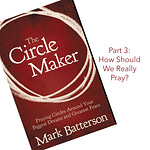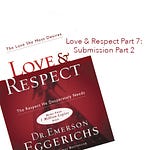Recently, I lost several hundred Christian followers on Twitter when I accused a well-liked member of the Twitter community of spiritual abuse and refused to bow to repeated demands that I take it back and apologize. Although many books have been written on the topic of spiritual abuse, they almost always examine or deal with abuse on an institution level, but rarely on a personal one. In fact, we love pointing fingers at the leaders of large institutions, because of how much power they have over those institutions. An institution is a group of people, however, and it is people that commit abuse.
We like talking about "institutions" however, because it depersonalizes the problem. It allows us to talk about abuse without actually having to examine who specifically is committing it. Talking about an institution allows us to reassure ourselves that since we are not an institution, then clearly we are not the problem. But if everyone is not an institution, then who is the problem? Well, no one, of course, which is why institutional abuse just goes right on happening because it is no one's fault.
Of course, we are very comfortable pointing fingers at leaders, but leaders only make up only a tiny fraction of an institution and therefore only capable of committing the tiniest fraction of abuse. The truth is, the majority of people in almost every institution are participants in abuse. We are very happy with a light being pointed at a handful of leaders in an organization, but we don’t want it pointed at us. We don't to examine how our individual actions result in abuse.
Spiritual abuse is about power and control. It happens any time we put ourselves in the place of God in anyone else’s life. Any time we try and invoke the name of God or Jesus to give ourselves more power or authority in someone else’s life than we are entitled to have. Most people are probably familiar with the third commandment as a command to not take the name of the Lord “in vain”, which is commonly interpreted to mean not using it as a swear word. I don’t believe that is actually what it means.
The NIV says to not “misuse” the name of God. I believe it refers to using the name of God to give yourself more authority than you are meant to have. Similar to when children invoke the name of a parent to give themselves authority. If a parent sends a child with a specific message, then they are genuinely acting on the authority of the parent. Just like Christians, however, many children will invoke the name of a parent to force a sibling to do their will. That is abuse. Too many Christians say things like “that is not of Jesus” or “that is not Godly” but that is not actually their right to decide.
Most of the teachings of Jesus are left open for individuals to decide what they mean. It is fine to quote Jesus directly, but it is no one’s right to decide for anyone else what it means to love your neighbor or what is or is not “loving.” Ultimately, we all pay a price for our own actions and decisions, which is why it is so important that we make them for ourselves. If another person is not going to pay the consequences for your choices, then they do not get to decide what you should or should not be doing - much less what God does or does not want you to do.
If you find this podcast to be helpful, it would be incredibly helpful to me if you could go to iTunes and leave a star rating and review here!
Join the Instagram community here // Twitter here // support me on Patreon here.










